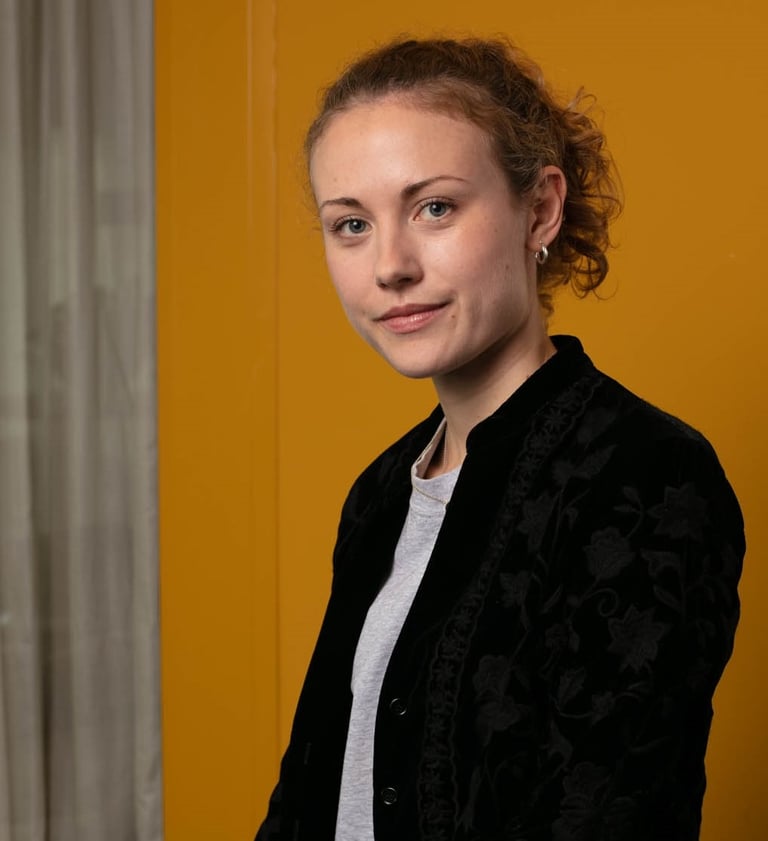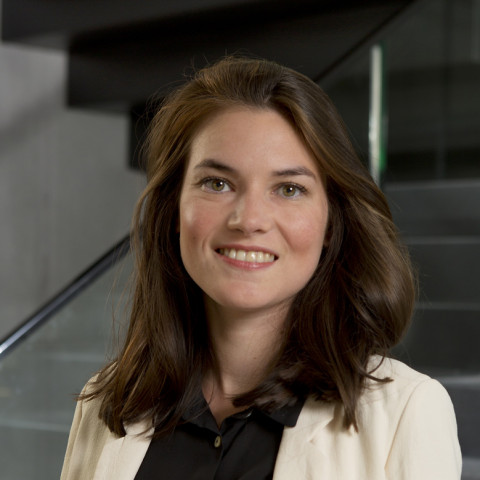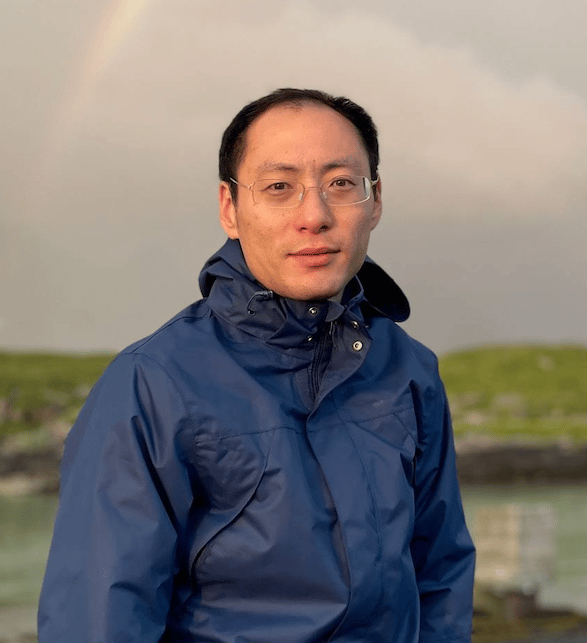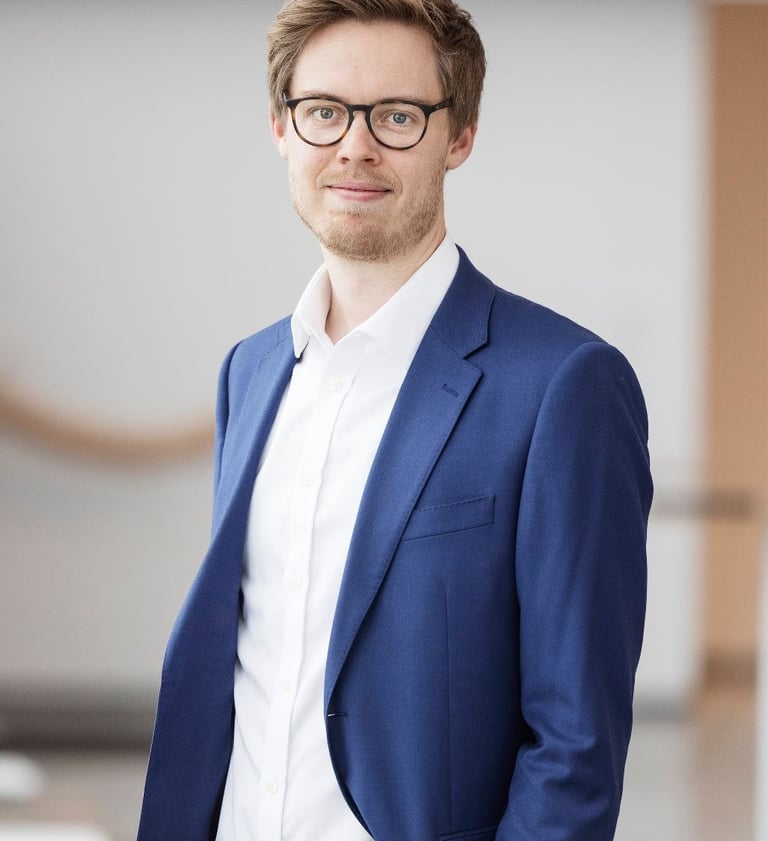Meet the YVC Community
Decoding Deal Sourcing in China
An interview with Alice Vickers – Associate at Forbion, Audrey Cacaly – Principal at Forbion, and Yuexin Yu – Director at Andera Partners


Over the past few years, the biotech industry has witnessed a wave of licensing deals between Chinese companies and European and US based investors eager to access innovative science and competitive drug candidates. In this issue of "Meet our Community," we have asked Alice Vickers, Audrey Cacaly, and Yuexin Yu for their views on China's current biotech landscape, the factors driving its rapid evolution, the key lessons for investors, and the future outlook for both China and Europe.
- When did investors see an inflection point in Chinese biotechs and how did it happen?
Alice: From 2015 to 2020, China rapidly developed a strong biotech ecosystem through significant capital investment (about 20 billion of capital), improved regulations that converged towards Western standards, and deployed strategic repatriation of top scientific talent.
Audrey: At Forbion we have witnessed the first "proof-of concept deal" with Aiolos in 2024, a demonstration of the ability to in-license a differentiated asset from China, subsequently sold to GSK for $1B upfront plus $400M in regulatory milestones. We worked with a very strong team of serial entrepreneurs looking for a new venture and scouting key assets in China. This deal showed China’s potential to develop highly competitive assets that attract major international investor and pharma interest.
Yuexin: In addition to biotechs run by Chinese returnees, the sector benefits from the transformation of local traditional pharmas (such as Hengrui which originated the Aiolos product). These pharmas have only 20 years or so operating as innovative product companies, very young compared to major multinational pharma companies. You can clearly see their agility. When it comes to execution there is an interesting culture of doing more with less, and faster on top of that.
- How do Chinese biotechs and pharmas achieve high quality with lower valuations? Has there been an evolution from me-better products to more innovative, first-in-class assets?
Yuexin: Chinese biotechs and pharmas traditionally excel in incremental engineering innovations leading to potential differentiations on efficacy, safety, cost etc. In obesity for example, longer acting agents or small molecules with biologics-like potency are being developed to be commercially viable for the local market, which also attract global buyers. On novel MoAs, we are seeing more projects coming out of labs. Let’s take some time to see.
Alice: China is especially strong on biologics, thanks to top talent in protein engineering, supported by substantial investments in CDMO capabilities, exemplified by companies like Wuxi. They also do a lot of cell therapy thanks to the structure of their regulatory environment.
From this strong me-better basis, recent analyses show that first-in-class assets from China doubled between 2021 and 2024. So, more innovative products and novel biology seem to have become a focus for Chinese pharmas and biotechs, and the increase in Western pharma’s preclinical stage deals is also reflective of the maturity of their shift to first-in-class.
Audrey: Yes, and that evolution has been seen in Forbion’s dealflow, where we initially emphasized validated mechanisms but are now actively exploring disruptive innovations and first-in-class assets.
- What lessons can the US/EU learn? What are the key takeaways for Western investors from China’s biotech growth?
Alice: We are seeing an increase in first in class assets in China and speed there is paramount. So, European companies need to think about their IP strategy, knowing that there'll be a Chinese group that immediately starts working on a similar compound after its publication. That’s why timing of IP filings should be done as late as it can be.
Audrey: Now, when we review competitive landscapes, we include molecules that have been developed in China or in Asia in general.
Yuexin: Agree. In China things move fast, especially at preclinical and early clinical stages. That’s where we keep an eye out. Exchanging perspectives with Chinese companies on topics such as technology trends, financing, BD can sometimes generate new ideas. Many Chinese companies and VCs are quite new, so it’s good to be open minded when looking to build your knowledge network of that region.
"As the hurdle is increasing for US-China business making, European companies are able to access to opportunities in all geographies" Yuexin Yu, Andera
- Operationally, how can we source and syndicate deals on Chinese assets?
Yuexin: Working with local parties is quite effective in scouting assets and shaping projects.
Alice: Attending conferences and leveraging strong local connections, similar strategies used successfully in US and Europe, are effective in China too.
Audrey: Alice’s dedicated efforts have built valuable networks in China for Forbion. Geographic distance requires extra effort, but the fundamentals of relationship-building remain consistent.
- Could you share any tips/best practices for such deals?
Alice: Having a ready management team and syndicate significantly strengthens negotiating positions, particularly in competitive therapeutic areas. Working with locally based funds is not necessary, but can help understanding and facilitate deal-making.
Audrey: Indeed, at Forbion our approach involves assembling a syndicate before negotiations, ensuring efficient and collaborative interactions and due diligence with Chinese counterparts.
Yuexin: Speaking to Chinese parties will let you gain diligence and deal making insights to navigate different ecosystems. Even before China's rise, Andera Partners has a good history of making licensing, newco and joint ventures in Asia both on the biotech and medtech sides.
Alice: Turning to the due diligence process itself, we have built ourselves a network of consultants, essentially people for regulatory or CMC diligence that know China really well and/or speak Mandarin. The way to conduct diligence on these companies is slightly different to US or European investments.
Audrey: In the case where the company only has an Asian clinical dataset, we would typically work with clinical pharmacologists to help us understand the difference in pharmacokinetics and to validate the translatability of Chinese datasets to other ethnic groups.
- Are early-stage trials in China and licensing deals still advantageous economically?
Alice: Chinese biotechs frequently leverage early clinical trials from China and Australia, where studies are cheaper. These data can facilitate discussions with Western regulators, even though additional trials in the US or Europe remain necessary. And so, it will remain true that reaching clinical stage will remain cheaper in China than in the US/EU.
Yuexin: Early and quick clinical validation by Chinese companies remains attractive. The local financing environment in China is harsh; the local pricing pressure is unbearable. It forces all players to make deals with global partners, being companies or investors, to unlock the value of their programs. When it comes to the economics, you better focus on those opportunities that suit your fund best.
Audrey: It is true that deals in China have become more expensive and more competitive. The market is getting a bit saturated. We see more and more competition from large pharma and, obviously, that impacts the deal metrics. First-in-class are probably the next wave of innovation and the growth opportunity for us to be more involved. Best-in-class opportunities are more difficult to differentiate given the great number of molecules in preclinical or early clinical stage, though some areas (e.g. multispecifics) do not seem saturated yet.
- In your view, what are the future directions and evolution of the Chinese biotech market, the impact of geopolitical tensions, and the potential role for Europe?
Audrey: Increasing competition from big pharma raises asset valuations. Future focus may shift increasingly towards first-in-class innovative biology, validated mechanisms of action should be differentiated with "novel" therapeutic modalities (e.g. multispecifics).
Alice: China’s rapid adoption of AI-driven drug discovery technologies represents another significant emerging trend, potentially altering traditional drug development paradigms. China's need for external capital and the higher pricing potential in the US market will keep outbound licensing active, even as China’s domestic pricing model slowly evolves.
Yuexin: To your question on the impact of geopolitical tensions, as the hurdle is increasing for US-China business making, European companies are able to access more opportunities in all geographies. That said, we have this imminent tariff thing to manage for which every European biotech is now working on their supply chain back-up strategy including managing those providers in China.
- Could you please add any concluding remarks?
Audrey: In a climate like this, we see Europe as a bridge from China to the US because clinical development in the US and Europe in general is critical for any exit or strategic discussion with any large pharma, including for Chinese companies.
Yuexin: It’s an exciting time to rediscover China as a source of life sciences innovations in a mass scale. More and more patients are starting to benefit from these innovations. As for young generations of biotech investors, an expanding global mindset is always helpful and fun. That’s why it’s great that YVC opens this conversation!
Over the past decade, China's biotech sector has matured rapidly, driven by talent repatriation, strong capital flows, regulatory reform, and technological advancement. Western investors now face a fast-paced, innovation-driven landscape where first-in-class assets and preclinical deals dominate. As global capital and geopolitical dynamics evolve, Europe is well-positioned to serve as a bridge between Chinese innovation and Western commercialization. Opportunities for mutual growth remain strong and the key success factors will include strategic IP planning, strong local networks, and cross-border collaboration.




Unleashing the Power of Quantum
An Interview with Theodor Lundberg, Associate, Novo Holdings, Seed Investments


Quantum technology is emerging as one of the most transformative areas of innovation, with applications poised to revolutionize healthcare. To gain insights into the investment landscape of quantum technologies, we sat down with Theodor Lundberg. Theo is a physicist with a PhD in Quantum Computing from the University of Cambridge. After a successful stint at Sutter Hill Ventures, one of the world's oldest venture capital firms, he has now moved into the healthcare investment space with Novo Seeds' brand-new Quantum Investment mandate.
In this special "Meet our Community" feature, Theo shares his insights on the transformative potential of quantum tech in healthcare, the challenges that lie ahead, and how Denmark is positioning itself as one of the global hubs for quantum innovation.
- Let’s start with the basics. What is quantum technology, and why is there so much excitement around it now?
Quantum technology has been around for over a century, dating back to Niels Bohr and the early days of quantum physics. In fact, quantum principles are already integral to devices like lasers and PCs. What’s truly exciting today is the next generation of quantum: quantum computing, sensing, and communication. Quantum computing leverages principles like entanglement, superposition, and interference to solve problems that classical computers can't. It's the area with the largest potential for commercial impact. Quantum sensing enables the detection of extremely small phenomena, such as cellular oxidative stress which is the goal for companies such as QT Sense. Quantum communication focuses on secure data encryption over long distances, though its healthcare applications are more limited.
- Focusing on healthcare, how do you see quantum technology shaping the field?
Healthcare won’t see quantum technology everywhere, but there are specific, impactful use cases. For instance, quantum computing could be used for molecular docking in drug discovery or protein folding simulations. Quantum sensing, on the other hand, is more technologically advanced and could become relevant earlier. A great example is hyperpolarized contrast agents, which allow us to visualize biological activities that were previously undetectable. These agents have already been used in 50 clinical trials involving nearly 2,000 patients. These applications show a lot of promise, but it is worth mentioning that they are still in their infancy.
- Are there any specific low-hanging fruits for investments in these areas?
Companies in the sensing technologies space could offer a more near-term promising investment opportunity because they are more mature, and the technical risk is somewhat lower compared to quantum computing, which is still in its early stages. The key here is to find the commercial use case. Another avenue is investing in companies that supply components and equipment needed for quantum computing research. This could be a kind of “picks and shovels” approach. In this sense, companies similar to Bluefors or Zurich Instruments could be interesting opportunities.
- Amid this excitement around quantum, where do you see this technology in the next 5 to 10 years?
This is a challenging question because timelines for quantum breakthroughs are still hard to predict. From an investment standpoint, at Novo we're taking a realistic approach. Quantum technology has immense potential and we are optimistic that we will see the first commercial life science use cases in the coming years, but it’s going to take time before it will be widely applicable to healthcare.
"We are optimistic that we will see the first commercial life science use cases in the coming years, but it’s going to take time before it will be widely applicable to healthcare"
- Then, why do you think that now is the right moment to invest in quantum tech for healthcare?
We are at a pivotal point, especially with the recent progress in quantum computers. There was a landmark result in late 2023 when Google demonstrated a key milestone in creating a logical qubit—the building blocks of scalable quantum computers. Several other companies such as Quantinuum have followed suit with similar results since. This is a big deal because, in theory, once having 100 logical qubits, quantum computers will be able to solve problems that are impossible to address for classical computers nowadays.
- Following up on Novo Holdings and its recently launched Quantum Investment mandate. Can you provide an overview?
The fund is 1.4 billion DKK, to be deployed by 2030. It will support a mix of fund investments and direct investments, with a strategic focus, akin to Novo’s Antimicrobial Resistance Fund. One of the main goals of our Novo Holdings investment strategy is to support the local Nordic ecosystem and help bring in promising international players, pairing them with Denmark’s robust biotech sector.
- Denmark seems to be standing out in the global quantum race. Would you agree?
Yes, Denmark is already making strides. The Novo Nordisk Foundation has been supporting quantum research for several years now, and we’re starting to see the fruits of that effort. From a long-term perspective, we view quantum as a technology that will transform a range of industries, including healthcare. For the moment quantum might not deliver the same investment returns as AI or life sciences in the near-term, but the we and the Foundation believes in its transformative potential and is preparing for its eventual mainstream application.
- Given the hype surrounding this new computational wave, will quantum technology have a positive impact on deal-making?
Diagnostics using quantum sensing may draw greater interest but, at the end of the day, investors must look for a strong commercial case — having quantum tech doesn’t automatically justify a higher valuation, unless it enables a more versatile platform.
- And could it help us make better investment decisions?
For venture investment decisions, quantum computing won’t replace human relationships or intuition, especially in venture capital. However, in capital markets, where vast amounts of data exist, quantum algorithms may be able to help optimize portfolios. That said, quantum optimization algorithms often offer only marginal speed-ups compared to classical methods. In this field, it is more probable that AI has a more immediate impact.
- Now let’s talk about the challenges that quantum technology may bring. For instance, will quantum pose a risk to cybersecurity?
Leveraging quantum computing to discover new drugs will most likely not be much different from the current way we use classical computers or artificial intelligence nowadays. Quantum is just another tool in your toolbox – not a panacea. Success in healthcare, or any industry, will still depend on teams with unique insights and the ability to leverage these tools effectively. Regarding privacy, it is true that quantum computers could eventually break current encryption schemes, which is why quantum-safe cryptography is critical. Also, from the technical angle, scaling quantum computers to the order of thousands or millions of logical qubits and improving quantum algorithms are hurdles we’re still navigating.
- Then, to wrap up, we could say that quantum is incredibly exciting, but we must stay realistic about its timeline and challenges ahead.
Absolutely. It will take time before we see widespread commercial applications, especially in healthcare, but the groundwork is being laid now. As investors, we need to stay focused on the long game and with careful diligence, I believe there will be attractive returns to be found. The key is to keep track of the progress and be ready when quantum tech starts delivering real-world value.
Quantum technology holds immense potential for healthcare and life sciences, but its full realization within the healthcare sector is still years away. With researchers and investors like Theodor Lundberg working tirelessly to bring quantum innovations to life, we may be closer to revolutionary breakthroughs than we think. However, as he emphasizes, it’s essential to approach these investments critically and also with both optimism and realism. We must understand that the true widespread impact of quantum will only be realized in the years to come and will require patience, persistence, and visionary investment.
